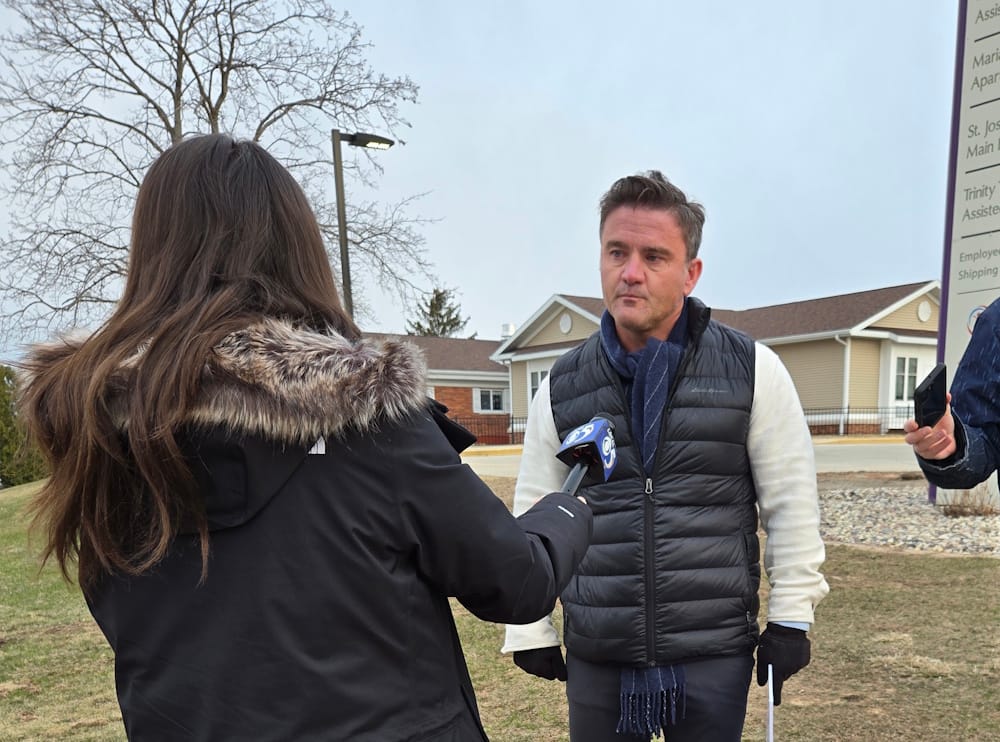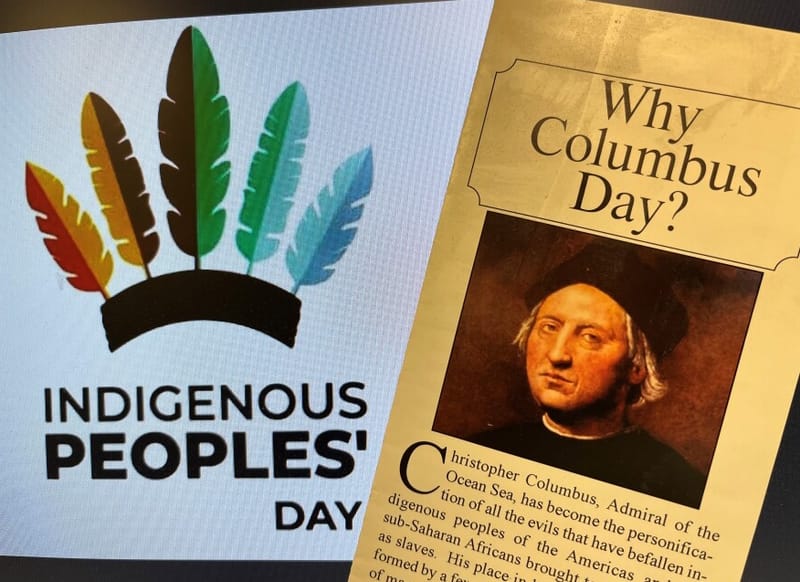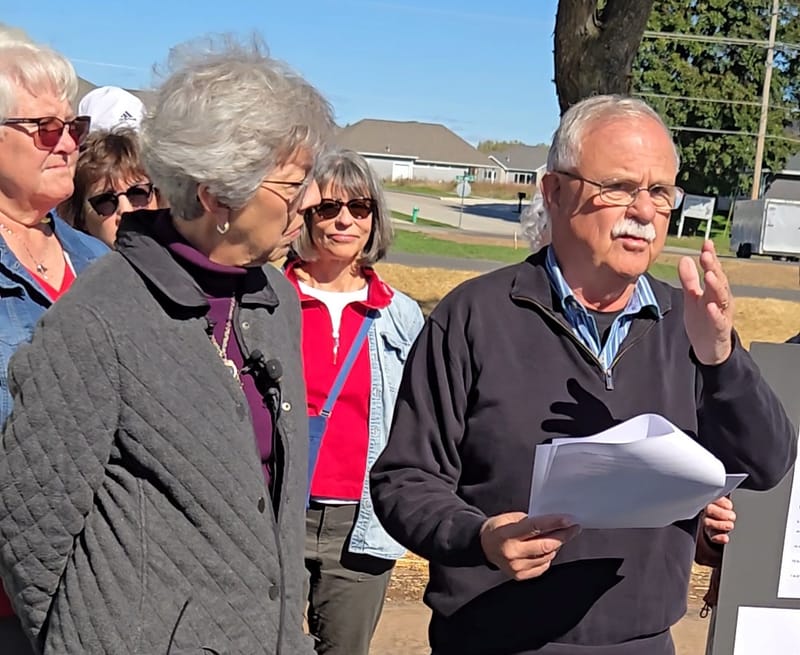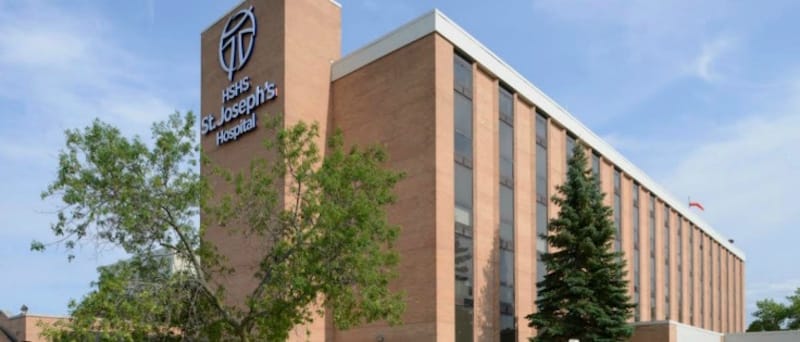Relief fund helps New London Haitians who lost their work permits and face deportation
Among the depredations they face in returning to Haiti are gang violence, political violence, economic insecurity, acute hunger and a lack of health care.
President Joe Biden’s humanitarian parole program from 2023 engendered criticism from both sides of the immigration debate.
Immigration advocates deemed the grant of temporary safe passage to the United States for Cubans, Haitians, Nicaraguans and Venezuelans (CHNV) who were at risk in their own countries to be insufficient in its allotment of applications (30,000 per month would be accepted) and too punitive in its additional restrictions of asylum at the US/Mexico border for those same nationalities.
Immigration opponents objected to Biden’s program on the usual grounds that the US simply could not take in more immigrants.
One thing seemed inarguable: the vetting process for accepting CHNV refugees was thorough. All applicants must have demonstrated urgent humanitarian and safety concerns for their families; have a US financial sponsor; pass security and background checks; travel through a US airport to be paroled into the country and be vaccinated. Once in the country, CHNV parolees were eligible to apply for work permits for two years.
In March, newly elected President Donald Trump ended the CNHV humanitarian parole program without warning, urging those here under its protections to self-deport and falsely claiming them to be "unvetted" while calling it a “disastrous program.”
New London immigration attorney Mark Christopher strongly disagrees.
“These people have gone through criminal background checks,” says Christopher, who has taken up legal cases on behalf of some of the refugees who settled in New London. “In addition to that, they also have to have a sponsor here in the United States, somebody who has agreed to help them acclimate themselves in the United States, and also to provide some basic means of financial support if they need it.
“But in almost every case, they don't because these individuals have found jobs right away. They've gotten acclimated into the community. The self sufficiency of the individuals here has just been amazing.”
Though a federal judge in May issued a stay on Trump’s executive order, the US Supreme Court lifted that injunction two weeks later and the Department of Homeland Security has since begun revoking work permits of CHNV parolees.
Dozens of area advocates came out in April to support Haitian worker at the local Tyson Foods plant.
New London, Tyson gladly accepted refugees
When Biden’s order went into effect, New London in east central Wisconsin accepted nearly 100 Haitian families who, over the course of the past two years, became part of the community in whatever way non-English speaking people from another culture possibly can. Tyson Foods in New London employed 100 of those refugees, which according to Helene Pohl, a French-born translator who has been helping refugees with English lessons, has been a win-win.
“Go ask any of the employers, the manufacturers, the builders, the construction company owners, that are here in central Wisconsin," Pohl says. “These are very good, hard-working laborers that were so desperately in need. I've talked to people who work at the Tyson plant and they've indicated to me they are so happy that these individuals are here.
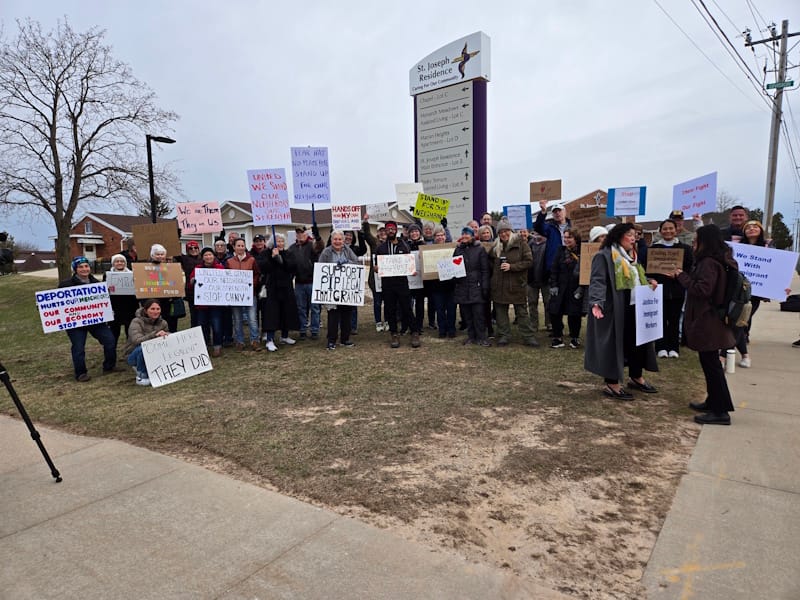
“It gives them more freedom in their schedule. They're no longer working double shifts. They're no longer having to work the night shift. They're able to take more vacations when they want to. So it's provided flexibility, not only for the businesses themselves, but also the other American workers that work there as well too.”
On July 2, though, Tyson, which had little choice, terminated all 100 employees after their work permits were revoked. Some of the families have taken up the administration’s offer of $1,000 to self-deport and have returned to Haiti, likely to face the same humanitarian and safety concerns that provoked them to leave in the first place. Among the depredations they face are gang violence, political violence, economic insecurity, acute hunger and a lack of health care.
This has left the remaining families in New London with little recourse. Only asylum would likely prevent their return and that seems like a long shot indeed.
Immigrant Relief Fund started by local residents
To help them survive in the interim, Pohl and three other women in the area – Ann Drzewiecki, Jane Haasch and Pat Lund-Moe – have set up the Immigrant Relief Fund. Thus far, they have raised more than $24,000. They have also helped guide families to any public services that are available to them, including food pantries and county health departments. They assist them in filling out necessary paperwork, including Medicaid applications for expectant mothers, for instance.
Families must have filed a request for asylum to qualify for help from the New London IRF. Then it is a process of filling out a short form and gathering further information to determine their level of need.
“Then at the bottom of that short form, we ask, what are your essential needs?” Pohl explains. “And because people don't know even the word essential in any language, we list rent amount, car payment, car insurance, phone. Because, you know, people can tell us it's a luxury to have a phone but try to function in our society without a phone. If they want another job, you know, a job that doesn't require a work permit, they need that phone. Same thing with the internet. So those are the main things … and legal fees. So those are five or six items that they have to tell us if they need help.”
Once a family qualifies, Pohl’s group begins to disperse the necessary funds, paying landlords directly so that there are no allegations of mismanagement and helping with energy and utilities costs and other daily living expenses. Of the $12,000 dispersed in July, $7,500 went to pay rent.
Some of the refugees have applied for new work permits as well as temporary protected status, though the process can take months. In the meantime, Pohl has tried to make the economic case for immigrant workers to federal and state lawmakers but with frustrating results. She arranged a meeting between State Sen. Rachel Cabral-Guevara and HR directors at Tyson, the Waupaca Foundry and the Ellsworth Creamery.
“They agreed to meet with her about the financial impact on their bottom line, because losing those immigrant workers is not going to be looking good to shareholders,” Pohl says. “Yeah, it's gonna hurt them, you know. But we went back and forth and (Cabral-Guevera) tells me it's a federal issue. And I said, it's a federal issue with local implications.”
While Pohl says she feels Cabral-Guevara cares about the issue, she’s disappointed at the lack of response.
“She feels that her hands are tied,” Pohl says. “And I beg to differ, because she can talk to the Republican leadership any day she wants. I hope there's some serious discussion behind closed doors that I'm not privy to, but that was my way of telling her, I'm holding you accountable. I made that really clear, there will be repercussions at the next election for you, and you count on Waupaca County for a re-election.”
'It has touched my heart'
So far nearly 90 people have contributed to the New London Immigrant Relief Fund. Twenty-four more have donated in kind furniture, diapers, clothes and garden vegetables. Others have provided day jobs.
Fourteen Haitian families and 27 people are currently receiving assistance. Pohl says her group remains small because it needs to be flexible and it often needs to make quick decisions. She says she wishes more Americans saw these desperate people as fellow human beings who are seeking the same things we all seek: economic security, safety, community. She stresses these were hard-working middle class families back in Haiti. Among the careers some of the Haitian refugees were forced to flee are mechanic, carpenter, phlebotomist, grocer and tech school professor.
“We as middle class people, we don't realize how privileged we are,” she says. “But we have no chance to get to know renters or people who are low income or people who work in factories. They have been very happy to live where they are. They found jobs, the schools embraced their children. They have tried to live the life of the immigrants we have documented over a couple centuries and all of a sudden, the rug is pulled from under them.”
In the dark times we are living through, Pohl says the opportunity to help spread a little light in whatever small way she and her group can has allowed her to hold on to her hope for humanity.
“It renews, you know,” she says. “In the tragedy and the sadness and the chaos, to be able to do something and to do something constructive, and to see the difference we can make. I mean, just the difference between being housed and unhoused for those people, you know.
“So it has touched my heart to see how many people have opened their wallets and will continue to do so.”
Relief fund helps New London Haitians who lost their work permits and face deportation © 2025 by Kelly Fenton is licensed under CC BY-NC-ND 4.0


